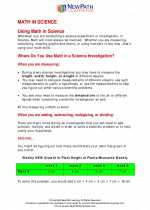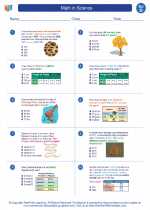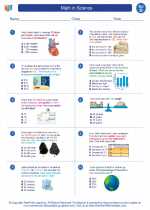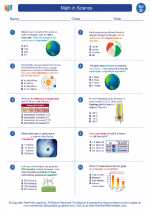Math in Science -> natural phenomena
Natural Phenomena
Natural phenomena are observable events that occur in the natural world and are not caused by human activity. These events are often the result of natural forces and processes, and they can be both predictable and unpredictable. Natural phenomena can include weather patterns, geological events, astronomical events, and biological processes.
Types of Natural Phenomena
There are many different types of natural phenomena, including:
- Weather phenomena: This includes events such as thunderstorms, tornadoes, hurricanes, and blizzards.
- Geological phenomena: Earthquakes, volcanic eruptions, landslides, and tsunamis are examples of geological natural phenomena.
- Astronomical phenomena: This category includes events such as solar and lunar eclipses, meteor showers, and the movement of celestial bodies.
- Biological phenomena: Natural processes such as photosynthesis, migration patterns, and the life cycles of plants and animals are considered biological natural phenomena.
Studying Natural Phenomena
Studying natural phenomena is an important part of understanding the world around us. Scientists and researchers use various methods to study and analyze natural phenomena, including observation, experimentation, and data collection. By studying natural phenomena, we can learn more about the Earth, the universe, and the processes that shape our environment.
Study Guide
Here are some key points to remember when studying natural phenomena:
- Identify the different types of natural phenomena and provide examples of each.
- Explain the methods scientists use to study natural phenomena.
- Discuss the impact of natural phenomena on the environment and human society.
- Explore the ways in which natural phenomena can be both predictable and unpredictable.
- Consider the role of natural phenomena in shaping the Earth's landscapes and ecosystems.
Understanding natural phenomena is essential for gaining a deeper appreciation of the natural world and the forces that drive its many processes and events.
.◂Science Worksheets and Study Guides Fourth Grade. Math in Science

 Worksheet/Answer key
Worksheet/Answer key
 Worksheet/Answer key
Worksheet/Answer key
 Worksheet/Answer key
Worksheet/Answer key
